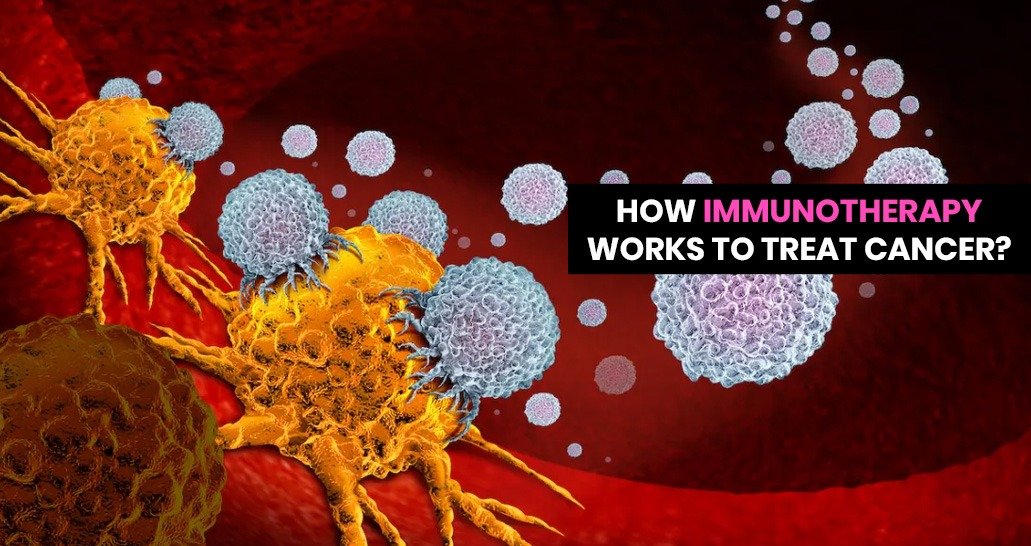With novel therapy techniques comes new systemic approaches for patients in different stages of the disease, further proving how the advancement of the treatment of cancer has really evolved over the years. One of those advancements is the use of immunotherapy to treat cancer, which deploys the body’s immune system to combat the cancer.
Immunotherapy is defensive and focuses on strengthening the immune system, unlike chemotherapy and radiation, which are destructive and offensive to the cancer cells.
This blog focuses on how immunotherapy works to treat cancer and its method of administration, benefits and possible restrictions and the fact that the best results ought to be maximally achieved by working closely with an immunotherapy expert.
What is Immunotherapy?
Immunotherapy is a form of treatment that seeks to activate the body's immune system to locate and kill cancer cells. Cancer cells often evade immune attack by either suppressing the immune system or by stealth, masking themselves behind certain cloaks. Immunotherapy aims to assist the immune system in overcoming the suppression cancer attempts to place upon it.
How Immunotherapy Works
The immune system is made of special distinguishing cells, like T-cells, which find and destroy the cancer cells. Cancer cells cloak themselves to evade immune surveillance. Cancer immunotherapy assists by:
-
Enhancing immune cells to attack cancer cells.
-
Disabling cancer-associated immunosuppressive signals.
-
Educating the immune system to “remember” cancer for the future.
This is a very precise methodology and can act differently for a given patient due to the specific types and stages of cancer.
How many types of Immunotherapy are there?
The method of giving treatment would depend on the type of cancer being treated, as well as the overall treatment strategy.
Types of immunotherapy include (but are not limited to):
- Immune checkpoint inhibitors: Cancer medications that obstruct the processes of proteins utilized to disable immune responses.
- Monoclonal antibodies: Cancer cell-targeting bioproducts that signal other immune system cells to engage.
- Cancer vaccines: Targeting anti-cancer proteins that aim to enhance immunological responses.
- Adoptive cell transfer: the process of reinfusing a patient’s cultured immune cells after performing genetic engineering on them.
- Non-Specific Immunotherapy: This includes treatments that boost the level of immune responses at an overarching level.
-
- Cytokine Therapy: Invokes the activity of specific proteins called interferons and interleukins which help initiate and amplify immune responses.
- Oncolytic Viruses: Use viruses that have been modified to focus on and kill cancer cells while leaving healthy cells unharmed.
- Immune system modulators: These are agents that can enhance or restrict the immune reaction to a tumor or neoplasms.
- Cytokine Therapy: Invokes the activity of specific proteins called interferons and interleukins which help initiate and amplify immune responses.
Can Immunotherapy Cure Stage 4 Cancer?
Immunotherapy, in some cases, has advanced and has even led to the treatment of advanced cancers. While a cure is not the most reliable answer, some patients can have an improved quality of life and an increased survival rate. Success depends on the type of cancer, the type of Genetic mutation, overall health, and immunity to the therapy.
Benefits and Limitations of Immunotherapy
Benefits:
-
Targets cancer cells with precision.
-
It may work when chemotherapy or radiation is less effective.
-
It can provide lasting immune memory against cancer.
-
Improves survival in certain advanced cancers.
Limitations:
-
Not effective for all patients or cancer types.
-
May cause immune-related side effects like fatigue, skin rash or inflammation.
-
Requires careful monitoring and expert supervision.
When is Immunotherapy Used?
The following types of cancers might require immunotherapy:
-
Advanced or metastatic cancers.
-
The cancer comes back after undergoing the standard procedures.
-
The cancers include melanoma, lung cancer, kidney cancer, head and neck cancers, and certain types of blood cancer.
The tumor's type and stage, genetic testing, and overall patient condition will determine the use of this procedure.
Why Choose Dr. Pooja Babbar for Cancer Care in Gurgaon
The skillful application of immunotherapy requires evaluation by an expert since its effectiveness rests on a multitude of personal variables. Advanced therapies, including immunotherapy, are within the purview of Dr. Pooja Babbar, the best Medical Oncologist in Gurgaon, with 15+ years of experience in Cancer care.
- Assesses who among the patients is most likely to benefit from cancer immunotherapy.
- Offers innovative therapies such as immunotherapy and targeted therapy.
- Aims at the development of individualized approaches to each patient.
- Highly regarded for the use of evidence and compassion in the treatment of patients with cancer.
Conclusion
Imunotherapy represents a new slice in cancer treatment. Having the unique ability to train the body’s immune system against Cancer, it can use approaches such as checkpoint inhibitors, monoclonal antibodies, vaccines, and even altered immune cells as per the patient's profile and type of cancer. While it doesn’t offer a full treatment for all cancers, notably stage 4, it’s still able to improve survival rates and control the disease in many others.
The center of importance stems from the fact that, in the case of cancer, all other forms of therapy might not suffice. If you wish to seek advanced treatment, it’s best that a qualified oncologist is reached out to. Dr. Pooja Babbar, for instance, is the best cancer specialist in Gurgaon who works on and offers specialized immunotherapy cancer treatment, creating the best and most intricate plans possible for the patient.














